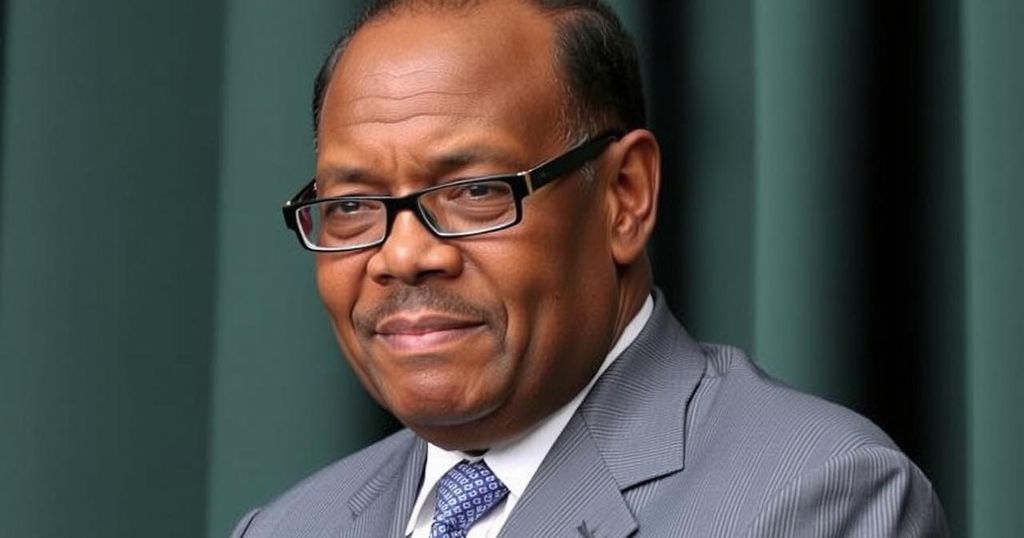Rwandan President Paul Kagame has denied allegations of his country supporting the M23 rebel group in the DRC, asserting that M23 fighters primarily come from Uganda. This comes in response to a UN report accusing Rwanda of military assistance to M23 while emphasizing ethnic bias as the motivation behind such claims. Kagame criticized the international community for not addressing core issues like the FDLR militia’s presence in the DRC.
Rwandan President Paul Kagame has firmly denied accusations of his country’s support for the M23 rebel group in the eastern Democratic Republic of Congo (DRC), stating that the principal fighters of the M23 originated from Uganda. This assertion was made following a United Nations Group of Experts report that alleged Rwanda’s military support for the M23, thus exacerbating the ongoing conflict in the region.
During a press briefing in Kigali, President Kagame questioned the basis of the claims against Rwanda, emphasizing that the widespread fighting began with a core group in Uganda. He narrated the history of M23 fighters, many of whom found refuge in Uganda after the group’s disbandment in 2012-2013, further clarifying that a number of these individuals were disarmed and returned to the DRC government. Kagame noted, “The fighting was started by the main group that was in and from Uganda.” He argued that this group is not to blame for the current conflict.
In contrast, the UN report alleges that the Rwandan Defense Forces (RDF) have collaborated with M23 forces, allegedly employing advanced military technologies to gain control of significant territories in the DRC, such as the coltan-rich Rubaya mining sites. The report also mentions the expansion of M23’s territory by 30% between April and November 2024, indicating their sustained military advances into strategically valuable areas.
President Kagame countered these assertions, attributing the accusations to ethnic bias against Rwandophones in Congo, who have endured persecution for years. He stated, “The only reason Rwanda comes into question… is for a couple of reasons.” Kagame criticized the international community for neglecting the core issues driving the conflict, notably the existence of the FDLR militia, which he claims has remained in the DRC for three decades without intervention from the international community or the UN peacekeeping forces.
The statement from Kagame underscores his view that the DRC government has been evading accountability for the challenges it faces, seeking to shift the blame to Rwanda. He asserted, “The DRC government is not encouraged to take its own responsibility for its people and its country.” The situation in eastern DRC continues to deteriorate, with M23 pursuing territorial gains despite global condemnation and increasing tensions among armed groups in the region.
The ongoing conflict in the Democratic Republic of Congo (DRC), particularly in its eastern regions, has deep historical roots, exacerbated by ethnic tensions and political instability. President Kagame of Rwanda has faced relentless accusations regarding his nation’s involvement with the M23 rebel group, which has been implicated in fresh hostilities in eastern DRC. This complex conflict involves multiple armed factions and international oversight, particularly from the United Nations, which has criticized various countries, including Rwanda, for contributing to the instability. Understanding this context is crucial in assessing the effectiveness of international efforts to resolve the conflict and the challenges faced by the DRC government in addressing its internal issues, like the presence of militias such as the FDLR.
In summary, President Paul Kagame has strongly refuted claims of Rwandan support for the M23 rebel group, asserting instead that the conflict’s origins lie in Uganda. While the UN’s report highlights RDF collaboration with M23, Kagame suggests that accusations are rooted in ethnic bias and a lack of accountability on the part of the DRC government. As the conflict continues and international pressure mounts, Rwanda’s position remains contested, highlighting the complexities of the geopolitical dynamics in the region.
Original Source: chimpreports.com






